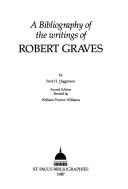| Listing 1 - 2 of 2 |
Sort by
|
Book
ISBN: 1280394692 9786613572615 9401207364 9789401207362 9789042034501 9042034505 9781280394690 6613572616 Year: 2012 Publisher: Amsterdam New York Rodopi
Abstract | Keywords | Export | Availability | Bookmark
 Loading...
Loading...Choose an application
- Reference Manager
- EndNote
- RefWorks (Direct export to RefWorks)
Here is presented an existential view of Graves’ poetic, historical, and critical work, whose coherence is being emphasized. Graves’ poetic outlook is first of all ethical and his aesthetics are subservient to his aim of transforming the emotion into existential thought in order to live on, to probe the experience, and to give it its ontological resonance. The divine capacity is to be found within the individual soul. It is immanent but transcends the phenomenological world. Like Kierkegaard, the poet experiences a feeling of certainty when faith animates him. In the present moment, he gets glimpses of paradise – the plenitude of being. No clipped wings, no well polished discipline or well-behaved guidance. In Kierkegaard’s words, the poet’s sphere is not the universal, or general, but the religious, or individual, sphere – faith, not the concept; self-confidence, not conformity to any over-simplified logic. Graves’ stance is paradoxical throughout: he was not politically involved (except immediately after the war when he said he was a Socialist), but evinced some political ideas in his essays. He was not religious, but poetry took the place of religion for him. He evinced a very original poetic outlook, but kept within the limits of well-accepted prosody. He liked to provoke his audience, but his poetry is never provocative. In other words, it is not easy to situate Graves according to time-honoured categories. He is too much of an individual poet to stand general classification. Yet his poems have a direct appeal to the reading public. He is a poet of unrest. This volume is of interest for scholars and poetry readers who wish to renew their appreciation of poetry and go beyond nowadays critical standards through a careful reading of the very powerful thought of a major poet.
Criticism and interpretation. --- Graves, Robert, --- Graves, Robert Ranke --- Graves, Robert --- Ranke-Graves, Robert von, --- Von Ranke-Graves, Robert, --- Doyle, John, --- Poetic works. --- Грейвз, Роберт, --- גרייבס, רוברט --- גרייבס, רוברט, --- Rich, Barbara

ISBN: 0906795168 Year: 1987
Abstract | Keywords | Export | Availability | Bookmark
 Loading...
Loading...Choose an application
- Reference Manager
- EndNote
- RefWorks (Direct export to RefWorks)
012 GRAVES, ROBERT --- Bibliografie van bepaalde auteur--NAAM--GRAVES, ROBERT --- 012 GRAVES, ROBERT Bibliografie van bepaalde auteur--NAAM--GRAVES, ROBERT --- Graves, Robert, --- Ranke-Graves, Robert von, --- Von Ranke-Graves, Robert, --- Doyle, John, --- Грейвз, Роберт, --- גרייבס, רוברט --- גרייבס, רוברט, --- Rich, Barbara --- Graves (Robert). Bibliographie. --- Graves (Robert). Bibliografie. --- Graves, Robert Ranke --- Graves, Robert
| Listing 1 - 2 of 2 |
Sort by
|

 Search
Search Feedback
Feedback About UniCat
About UniCat  Help
Help News
News